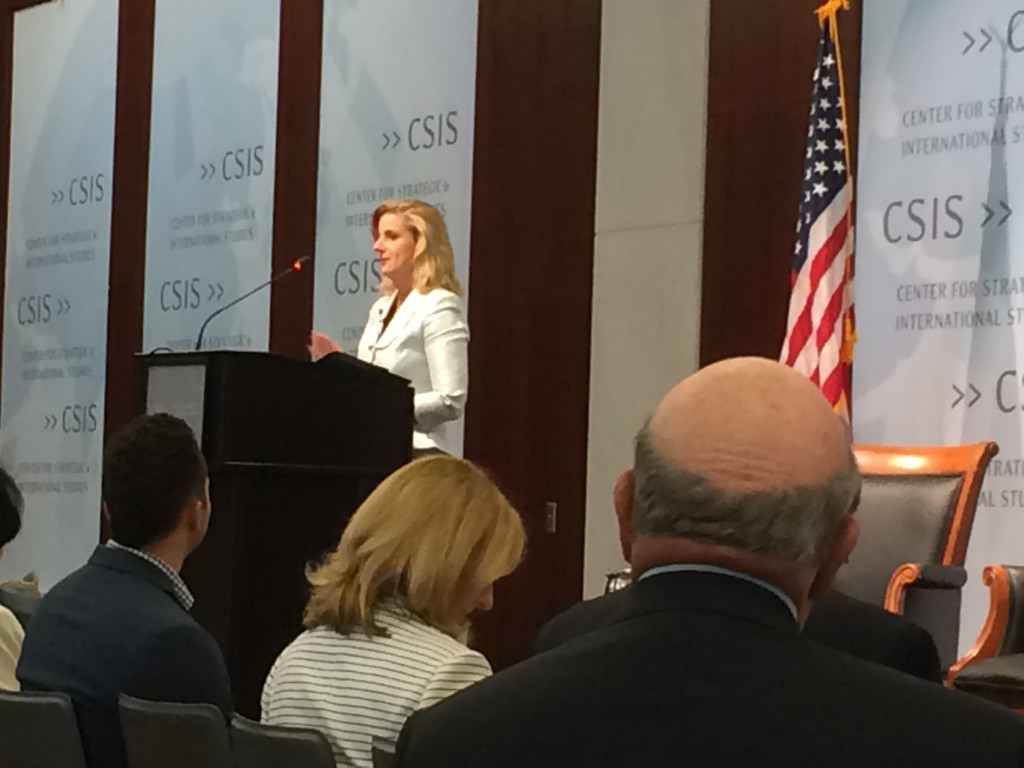
Under Secretary of Defense for Policy Christine Wormuth speaks at CSIS about top defense priorities. (Nikki McGee/Medill NSJI)
WASHINGTON – A top Defense Department official said Monday that the conflict in Afghanistan and the threat posed by the self-proclaimed Islamic State in Iraq and Syria should remain at the top of the list as U.S. defense priorities.
Under Secretary of Defense for Policy Christine Wormuth did not downplay adversaries such as Russia and China. However, she said those countries warrant a more long-term approach rather than the immediate response that the Middle East demands.
“There are issues I think with Russia and there are some challenges to manage with China, but we’re very, very focused on, and rightly so, ISIL,” Wormuth said in a panel discussion at the Center for Strategic and International Studies, a Washington think tank.
“We cannot afford to have Iraq and Syria become a long-term safe haven for ISIL,” she said. “We cannot allow ISIL to spread and metastasize the way that it clearly seeks to do.”
In Afghanistan, where the government is still fighting the Taliban, Wormuth said the U.S. goal is to see enough stability so that it can establish a normalized embassy footprint in Kabul by 2016.
“By putting out that time phased approach and putting some timelines in place, we are focusing the security forces on what they need to do,” Wormuth said. “And that’s actually, I think, resulted in a lot of progress in the last year, and is very much given us a sense of a roadmap of what we need to do in the year and a half we have left.”
Even with plans to withdraw troops after this year, President Barack Obama made the decision last March to keep about 9,800 troops in Afghanistan for the time being.
Wormuth said the president wanted to help the national unity government at this critical point of its first fighting season.
Wormuth also offered a comprehensive, nine-step “Counter ISIL” campaign. The approach is rooted in aligning with other governments.
“Ultimately we won’t be able to have a lasting defeat [of] … ISIL,” she said, “if we don’t leverage all of the different parts of the U.S. government, but also coalition governments around the world to try to bring the fight to ISIL in terms of countering its financing, in terms of defeating its messaging, in terms of stopping the flow of foreign fighters that are coming from countries all around the world.”
This approach is supplemented with a “Train and Equip” program the U.S. government has started in the Middle East to help countries develop the defense they need to combat ISIL.
Protecting the U.S. from ISIL terror attacks was the last portion of the strategy. Wormuth pointed out concerns about the growing number of American citizens who have gone to Syria to join ISIS, as well as “lone wolf” attacks involving homegrown, one-man terrorist threats.





